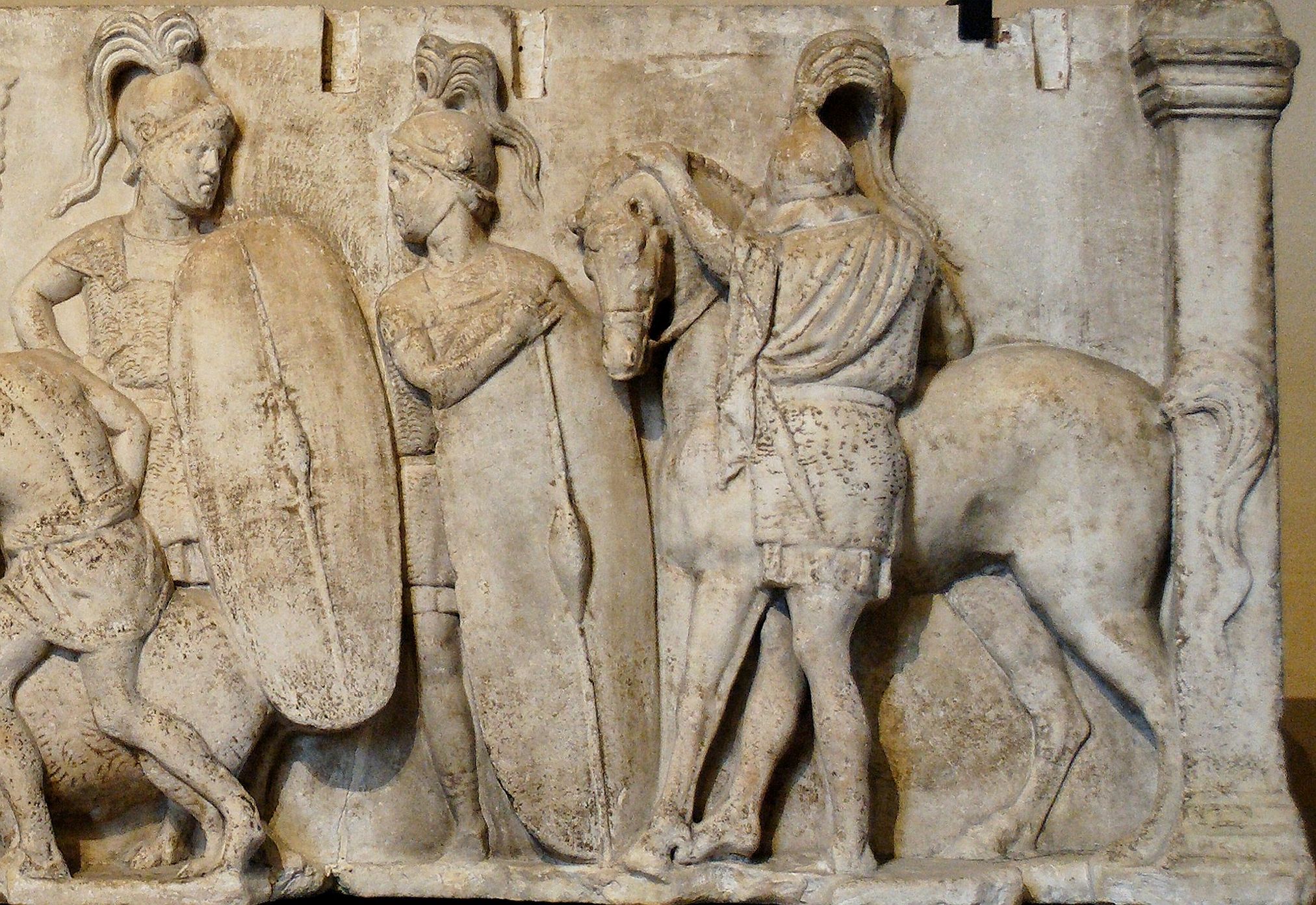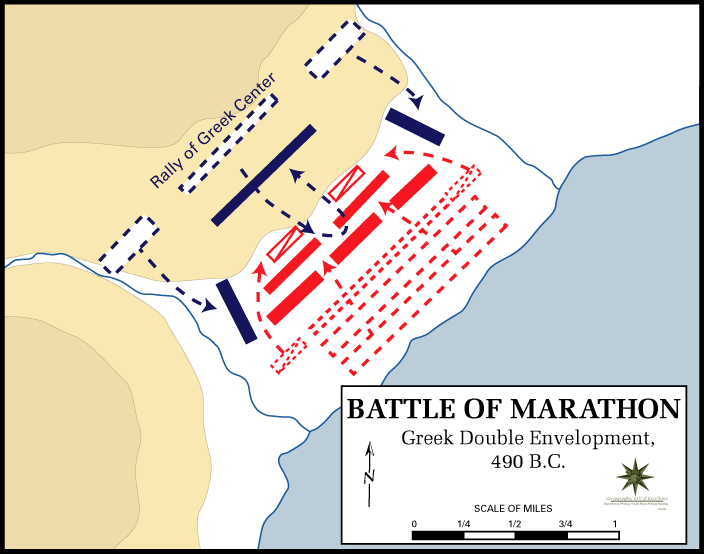|
Socii
The ''socii'' ( ) or ''foederati'' ( ) were confederates of ancient Rome, Rome and formed one of the three legal denominations in Roman Italy (''Italia'') along with the core Roman citizens (''Cives Romani'') and the extended ''Latin Rights, Latini''. The ''Latini'', who were simultaneously special confederates (''Socii Latini'') and semi-citizens (''Cives Latini''), derived their name from the Italic people of which Rome was part (the Latins (Italic tribe), Latins) but did not coincide with the region of Latium in central Italy as they were located in colonies throughout the peninsula. This tripartite organisation lasted from the Roman expansion in Italy (509-264 BC) to the Social War (91–87 BC), when all peninsular inhabitants south of the Po river were awarded Roman citizenship. Treaties known as ''foedus'' served as the basic template for Rome's settlement with the large array of tribes and city-states of the whole Italian peninsula. The confederacy had its origin in the '' ... [...More Info...] [...Related Items...] OR: [Wikipedia] [Google] [Baidu] |
Roman Citizenship
Citizenship in ancient Rome () was a privileged political and legal status afforded to free individuals with respect to laws, property, and governance. Citizenship in ancient Rome was complex and based upon many different laws, traditions, and cultural practices. There existed several different types of citizenship, determined by one's gender, class, and political affiliations, and the exact duties or expectations of a citizen varied throughout the history of the Roman Empire. History The oldest document currently available that details the rights of citizenship is the Twelve Tables, ratified 449 BC. Much of the text of the Tables only exists in fragments, but during the time of Ancient Rome the Tables would be displayed in full in the Roman Forum for all to see. The Tables detail the rights of citizens in dealing with court proceedings, property, inheritance, death, and (in the case of women) public behavior. Under the Roman Republic, the government conducted a census every fi ... [...More Info...] [...Related Items...] OR: [Wikipedia] [Google] [Baidu] |
Ala (Roman Allied Military Unit)
An ''ala'' (Latin for "wing"; ''alae'') was the term used during the middle of the Roman Republic (338–88 BC) to denote a military formation composed of conscripts from the ''socii'', Rome's Italian military allies. A normal consular army during the period consisted of two legions, composed of only Roman citizens, and two allied ''alae''. The ''alae'' were somewhat larger than normal legions, 5,400 or 5,100 men against the legion's 4,500 men, and it contained a greater quantity of cavalry, usually 900 horsemen against the 300 supplied by the Romans. From the time of the first Roman emperor, Augustus (ruled 27 BC – AD 14), the term ''ala'' was used in the professional imperial army to denote a much smaller (), purely cavalry unit of the non-citizen ''auxilia'' corps: see ala (Roman cavalry unit). History When the Roman armies started being composed partly of Roman citizens and partly of ''socii'' (allies from the rest of the Italian mainland), either Latini or Italici, it ... [...More Info...] [...Related Items...] OR: [Wikipedia] [Google] [Baidu] |
Roman Republic
The Roman Republic ( ) was the era of Ancient Rome, classical Roman civilisation beginning with Overthrow of the Roman monarchy, the overthrow of the Roman Kingdom (traditionally dated to 509 BC) and ending in 27 BC with the establishment of the Roman Empire following the War of Actium. During this period, Rome's control expanded from the city's immediate surroundings to hegemony over the entire Mediterranean Sea, Mediterranean world. Roman society at the time was primarily a cultural mix of Latins (Italic tribe), Latin and Etruscan civilization, Etruscan societies, as well as of Sabine, Oscan, and Greek cultural elements, which is especially visible in the Ancient Roman religion and List of Roman deities, its pantheon. Its political organisation developed at around the same time as direct democracy in Ancient Greece, with collective and annual magistracies, overseen by Roman Senate, a senate. There were annual elections, but the republican system was an elective olig ... [...More Info...] [...Related Items...] OR: [Wikipedia] [Google] [Baidu] |
Roman Italy
Roman Italy is the period of ancient Italian history going from the founding of Rome, founding and Roman expansion in Italy, rise of ancient Rome, Rome to the decline and fall of the Western Roman Empire; the Latin name of the Italian peninsula in this period was ''Italia'' (continued to be used in the Italian language)."Roman Italy" ''Encyclopædia Britannica.'' May 2025 According to Roman mythology, Italy was the ancestral home of Aeneas, being the homeland of the Troy, Trojans progenitor, Dardanus (son of Zeus), Dardanus; Aeneas, instructed by Jupiter (god), Jupiter, moved to Italy after the fall of Troy, and his descendants, Romulus and Remus, were the founding of Rome, founders of Rome. Aside from the legendary accounts, Rome was an Italic city-state that changed its form of government from Roman Kingdo ... [...More Info...] [...Related Items...] OR: [Wikipedia] [Google] [Baidu] |
Latin Rights
Latin rights or Latin citizenship ( or ) were a set of legal rights that were originally granted to the Latins and therefore in their colonies ( Latium adiectum). ''Latinitas'' was commonly used by Roman jurists to denote this status. With the Roman expansion in Italy, many settlements and coloniae outside of Latium had Latin rights. All the ''Latini'' of Italy obtained Roman citizenship as a result of three laws which were introduced during the Social War between the Romans and their allies among the Italic peoples (''socii'') which rebelled against Rome. The '' Lex Iulia de Civitate Latinis (et sociis) Danda'' of 90 BC conferred Roman citizenship on all citizens of the Latin towns and the Italic towns who had not rebelled. The ''Lex Plautia Papiria de Civitate Sociis Danda'' of 89 BC granted Roman citizenship to all federated towns in Italy south of the River Po (in northern Italy). The ''Lex Pompeia de Transpadanis'' of 89 BC granted the ''ius Latii'' to the communities ... [...More Info...] [...Related Items...] OR: [Wikipedia] [Google] [Baidu] |
Roman Military Structure
The structural history of the Roman military concerns the major transformations in the organization and constitution of ancient Rome's armed forces, "the most effective and long-lived military institution known to history."''Encyclopædia Britannica'', Eleventh Edition (1911), ''The Roman Army'' At the highest level of structure, the forces were split into the Roman army and the Roman navy, although these two branches were less distinct than in many modern national defense forces. Within the top levels of both army and navy, structural changes occurred as a result of both positive military reform and organic structural evolution. These changes can be divided into four distinct phases. ;Phase I: The army was derived from obligatory annual military service levied on the citizenry, as part of their duty to the state. During this period, the Roman army would wage seasonal campaigns against largely local adversaries. ;Phase II: As the extent of the territories falling under Roman c ... [...More Info...] [...Related Items...] OR: [Wikipedia] [Google] [Baidu] |
Foreign Policy
Foreign policy, also known as external policy, is the set of strategies and actions a State (polity), state employs in its interactions with other states, unions, and international entities. It encompasses a wide range of objectives, including defense and security, economic benefits, and humanitarian assistance. The formulation of foreign policy is influenced by various factors such as domestic considerations, the behavior of other states, and geopolitical strategies. Historically, the practice of foreign policy has evolved from managing short-term crises to addressing long-term international relations, with diplomatic corps playing a crucial role in its development. The objectives of foreign policy are diverse and interconnected, contributing to a comprehensive approach for each state. Defense and security are often primary goals, with states forming military alliances and employing soft power to combat threats. Economic interests, including trade agreements and foreign aid ... [...More Info...] [...Related Items...] OR: [Wikipedia] [Google] [Baidu] |
Annexed
Annexation, in international law, is the forcible acquisition and assertion of legal title over one state's territory by another state, usually following military occupation of the territory. In current international law, it is generally held to be an illegal act.: "Annexation means the forcible acquisition of territory by one State at the expense of another State. It is one of the principal modes of acquiring territory... in contrast to acquisition a) of terra nullius by means of effective occupation accompanied by the intent to appropriate the territory; b) by cession as a result of a treaty concluded between the States concerned (Treaties), or an act of adjudication, both followed by the effective peaceful transfer of territory; c) by means of prescription defined as the legitimization of a doubtful title to territory by passage of time and presumed acquiescence of the former sovereign; d) by accretion constituting the physical process by which new land is formed close to, or b ... [...More Info...] [...Related Items...] OR: [Wikipedia] [Google] [Baidu] |
Military Alliance
A military alliance is a formal Alliance, agreement between nations that specifies mutual obligations regarding national security. In the event a nation is attacked, members of the alliance are often obligated to come to their defense regardless if attacked directly. Military alliances can be classified into defense pacts, non-aggression pacts, and entente (type of alliance), ententes. Alliances may be covert (as was common from 1870 to 1916) or public. According to a 2002 dataset of military alliances, there have been 538 alliance treaties from 1815 to 2003. The vast majority of the alliances involve commitments to come to the military support of one ally involved in war. The vast majority are defensive in nature. Since the end of the World War II, Second World War, military alliances have usually behaved less aggressively and act more as a Deterrence theory, deterrent. Characteristics Military alliances are related to collective security systems but can differ in nature. A ... [...More Info...] [...Related Items...] OR: [Wikipedia] [Google] [Baidu] |
Flank (military)
In military tactics, a flanking maneuver is a movement of an armed force around an enemy force's side, or flank, to achieve an advantageous position over it. Flanking is useful because a force's fighting strength is typically concentrated in its front, therefore, to circumvent an opposing force's front and attack its flank is to concentrate one's own offense in the area where the enemy is least able to concentrate defense. Flanking can also occur at the operational and strategic levels of warfare. Tactical flanking The flanking maneuver is a basic military tactic with several variations. Flanking an enemy entails attacking from one or more sides, at an angle to the enemy's direction of engagement. There are three standard flanking maneuvers. The first maneuver is the ambush, where a unit performs a surprise attack from a concealed position. Units friendly to the ambushing unit may be hidden to the sides of the ambush site to surround the enemy, but care must be taken w ... [...More Info...] [...Related Items...] OR: [Wikipedia] [Google] [Baidu] |
Protectorate
A protectorate, in the context of international relations, is a State (polity), state that is under protection by another state for defence against aggression and other violations of law. It is a dependent territory that enjoys autonomy over most of its internal affairs, while still recognizing the suzerainty of a more powerful sovereign state without being a possession. In exchange, the protectorate usually accepts specified obligations depending on the terms of their arrangement. Usually protectorates are established de jure by a treaty. Under certain conditions—as with History of Egypt under the British#Veiled Protectorate (1882–1913), Egypt under British rule (1882–1914)—a state can also be labelled as a de facto protectorate or a veiled protectorate. A protectorate is different from a colony as it has local rulers, is not directly possessed, and rarely experiences colonization by the suzerain state. A state that is under the protection of another state while retai ... [...More Info...] [...Related Items...] OR: [Wikipedia] [Google] [Baidu] |





